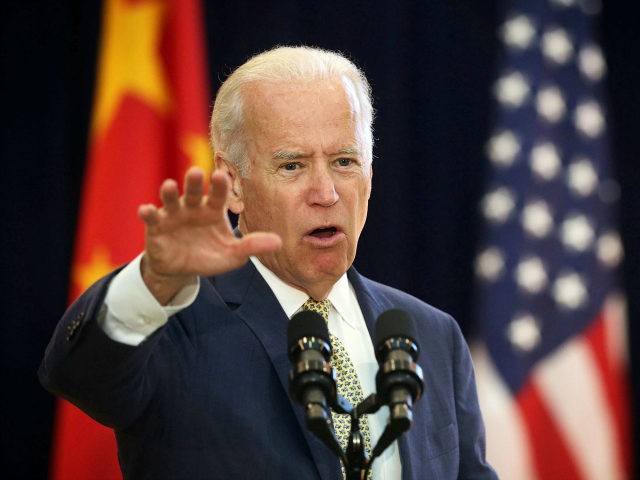Chinese state media bristled after a Monday press conference at the White House in which press secretary Jen Psaki described China as “authoritarian” and “assertive,” grumbling that the Biden team seems to have a “virtually identical” attitude toward Beijing as the Trump administration did.
Psaki was responding to a question about how the Biden administration would change U.S. policy toward China on trade and technology following Chinese dictator Xi Jinping’s call for multilateralism, and warnings about a new “Cold War” with the United States, at the World Economic Forum in Davos, Switzerland.
Psaki replied that no immediate changes would be made:
I think our approach to China remains what it has been since — for the last months, if not longer. We’re in a serious competition with China. Strategic competition with China is a defining feature of the 21st century. China is engaged in conduct that it hurts American workers, blunts our technological edge, and threatens our alliances and our influence in international organizations.
What we’ve seen over the last few years is that China is growing more authoritarian at home and more assertive abroad. And Beijing is now challenging our security, prosperity, and values in significant ways that require a new U.S. approach.
Psaki later mentioned, “holding China accountable for its unfair and illegal practices and making sure that American technologies aren’t facilitating China’s military buildup.”
None of this sat well with China’s state-run Global Times, which predicted a “long winter of China-U.S. relations.”
“Although the Biden administration resents the Trump team’s sanctions on China, they have no idea about how to deal with China either,” the Global Times muttered, before shrugging that mighty China no longer has to worry all that much about an America crippled by the Wuhan coronavirus:
We have the strongest economic recovery of any major economy in the world. We have a high level of unity at home. The idea of improving relations with the US is a gesture of goodwill from China in support of global stability. But we don’t have any big and urgent problem that needs the help of the Biden administration to solve right now. China has developed a strong capacity to adapt to and bear the current state of China-US relations. If Washington is not in a hurry to make a change, why should Beijing?
From the perspective of China’s interests as a country, China-US relations depend not only on the current issues and the amount of energy involved, but also on the outcome of the strategic competition between the two countries. That is to say, if the relationship between China and the US has reached a deadlock, but not to the point of war, while China’s relative development against the US was faster, and the power gap between the two countries was constantly narrowing, then the ties between China and the US cannot be said to be bad from a strategic perspective.
The Global Times crowed that Trump’s dreams of restraining Chinese aggression or “decoupling” from Chinese industry have been shattered, noting that “in the most difficult yar of 2020, foreign direct investment in China increased by 4 percent,” and “many big U.S. companies plan to expand their businesses in China.”
Another Global Times piece on Tuesday contemptuously dismissed Biden’s “Buy American” plans, citing “Chinese experts” who predicted, “Chinese manufacturing companies will have a better time during the Biden era than the time of his predecessor Donald Trump.”
“Biden’s policy tone has raised questions as to whether overseas companies, including Chinese businesses, would have fewer chances in the U.S. market. Economists, however, said that Biden’s policy isn’t feasible, particularly regarding low- and medium-end manufacturing,” the Chinese Communist paper wrote.
Chinese analysts said those low- and medium-sized American manufacturing jobs are gone for good, and no incentives from the Biden administration would convince manufacturers to move operations from cheap China to the expensive U.S., not if they wanted to keep their prices competitive.
One analyst, Gao Lingyun of the Chinese Academy of Social Sciences, said the Chinese coronavirus pandemic left America permanently dependent upon Chinese manufacturing, especially for medical and household goods, because “U.S. production capabilities have been significantly reduced.”
“Agriculture and electronics, for example, would see fewer orders from U.S. buyers. In general, however, no country, including the U.S., can do without Chinese products, particularly as their residents have seen their incomes dwindle during the pandemic and are in great need of cost-effective products,” added Zhang Yi of iiMedia Research.
The article concluded that even if the U.S. makes a major effort to restore its manufacturing capacity and cut back on Chinese imports, the Chinese economy would not suffer greatly, because domestic demand has increased so greatly in recent years.

COMMENTS
Please let us know if you're having issues with commenting.